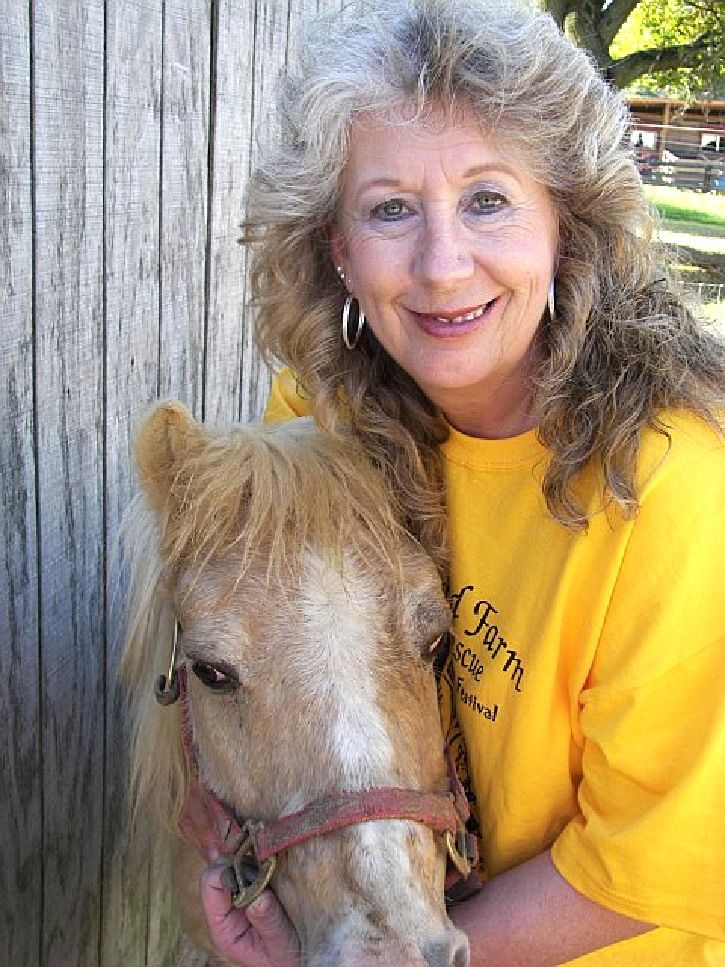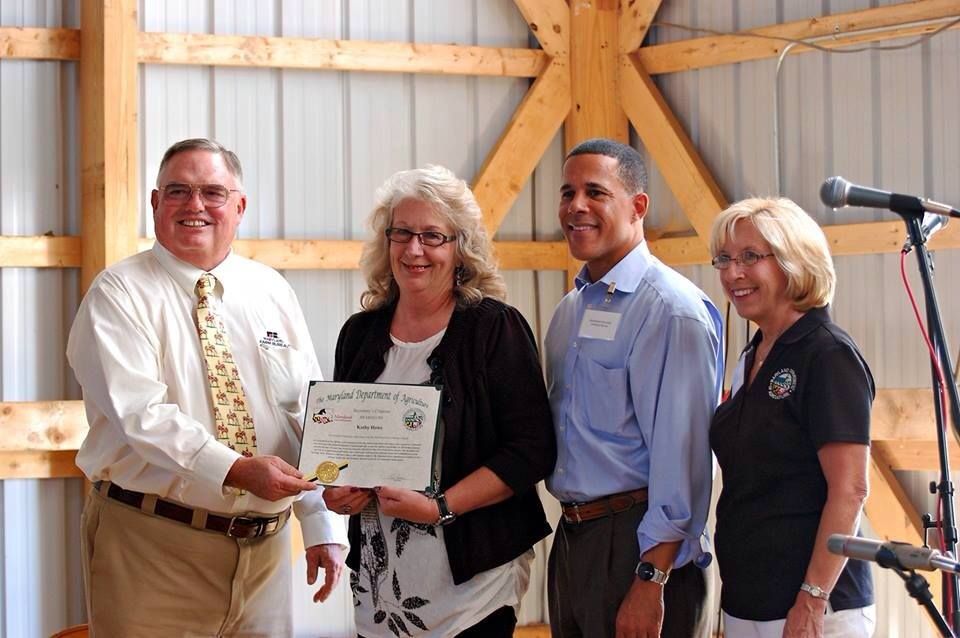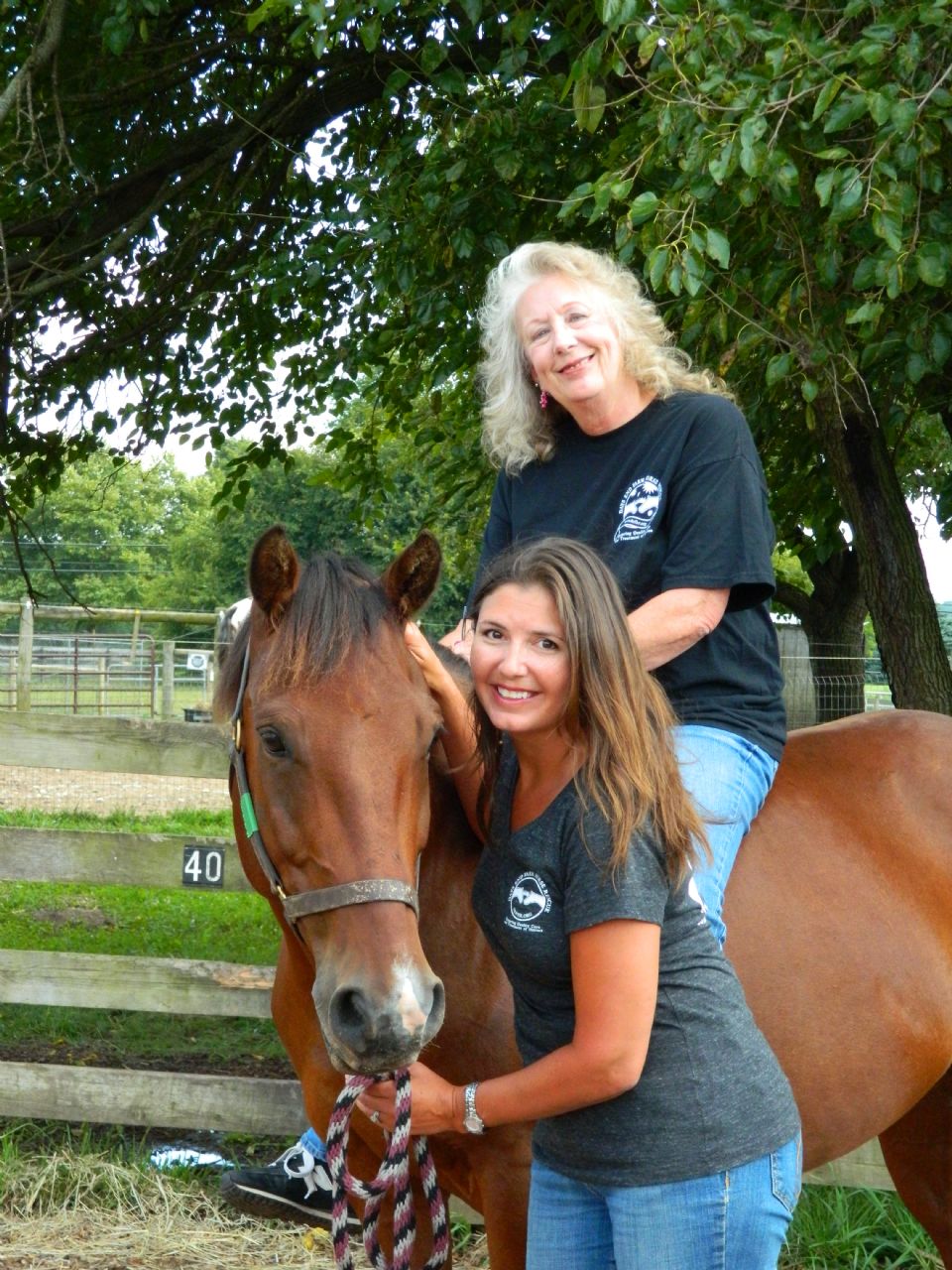Days End Farm Horse Rescue Commits to Extending Vision of Late Founder Kathy Schwartz-Howe
March 10, 2023 - Woodbine, MD
Photo courtesy of Days End Farm Horse Rescue
Photo courtesy of Days End Farm Horse Rescue
Photo courtesy of Days End Farm Horse Rescue
Days End Farm Horse Rescue (DEFHR) staff, volunteers, and its Board of Directors were saddened to learn of the passing of Kathy Schwartz-Howe, the organization’s co-founder and executive director for 24 years. Schwartz-Howe, 71, of Woodbine, Maryland, passed on March 6, 2023, following a battle with Alzheimer’s.
By many accounts, Schwartz-Howe was a pioneer in the world of equine rescue, but it was pure happenstance that led Schwartz-Howe to founding an equine rescue organization. In 1989, Schwartz-Howe and her then-husband Allan Schwartz discovered, acquired, and rehabilitated a malnourished gelding named Toby. The process — from acquisition through rehabilitation — demonstrated to Schwartz-Howe that the State of Maryland did not have facilities to assist law enforcement in caring for horses in Toby’s predicament, or to provide resources for owners in need, and it ignited a passion in the Schwartzes that led them to buy a small farm and offer intervention and rehabilitation services to horses.
Challenging the statistic that 70% of horse rescues fail within the first three years, what began as a labor of love grew into a tiny non-profit organization that is now, 34 years later, a successful 501(c)3 equine welfare facility that shelters up to 150 horses every year and has saved more than 3,000 horses to date.
While Toby’s success story set the stage for a lifelong mission of equine rescue and community education, Schwartz-Howe had bootstrapped her way through much of Toby’s rehabilitation and Maryland’s legal system. Consequently, she relied on local experts, welfare professionals, and veterinarians to lend critical knowledge about caring for horses recovering from neglect as well as the ins and outs of the legal system related to intervention.
One such animal welfare expert was Carolyn “Nicky” Ratliff, a current member of DEFHR’s Advisory Council. Ratliff met Schwartz-Howe in 1991 when DEFHR was still in its infancy. At the time, Ratliff was the Executive Director of the Humane Society of Carroll County Inc. and the President of PAWS, Inc., the state association of animal control agencies and humane organizations. Recognizing Schwartz-Howe’s passion and sensibility, Ratliff suggested DEFHR join PAWS, Inc. in an effort to assist Maryland’s animal control officers. As a result, the State of Maryland would handle the intervention and seizure of horses as well as manage the legal process related to neglect and abuse cases, while Schwartz-Howe and her husband would rehabilitate and keep the horses at DEFHR until their legal cases were resolved and they were cleared to be adopted by new owners.
Becoming a Trailblazer
The Schwartzes agreed to join PAWS, Inc., and it became a key inflection point in the evolution of DEFHR’s mission. Schwartz-Howe had been immersing herself in research and information about horses and, in turn, the Schwartzes began to educate state authorities and animal control officers about equines in need. At the time, DEFHR was the only organization in Maryland working with animal control officers to support equine investigations.
“Kathy [Schwartz-Howe] did an unbelievable job of educating herself on horses, horse health, and how to run a non-profit organization,” said Ratliff. “She became an absolute expert and, essentially, an encyclopedia.
“Prior to Kathy, most animal control officers didn’t know the front end from the back end of a horse,” continued Ratliff.
Well before the advent of the internet, Schwartz-Howe had become a wealth of knowledge in a time when very little information about equine cruelty and abuse was readily available. Recognizing the gap in knowledge, she developed a comprehensive booklet to assist people interested in starting an equine rescue.
While this booklet was valuable for locals interested in the equine welfare space, Schwartz-Howe’s expertise also had a broader positive impact. Most notably, she was instrumental in developing the current Minimum Standards of Care for Equines for Maryland state law. While not a law in and of itself, the Minimum Standards of Care are horse care guidelines that help educate law enforcement officers, juries, and horse owners — many of whom aren’t familiar with horse keeping best practices — interpret and/or apply animal cruelty statutes and the eventual prosecution of individuals who mistreat their horses. The prosecution of these individuals is critical to the mission of putting an end to equine neglect and cruelty. In addition to giving horses in a specific case a second chance at life, it also heightens the public’s awareness about what mistreatment looks like and how to get assistance if they witness a horse in a dire situation.
“Kathy’s role in creating the Minimum Standards of Care was inspiring for DEFHR staff, volunteers, and even animal control officers,” recalled Ratliff. “It gave them purpose.”
Ratliff witnessed the evolution of DEFHR for more than 30 years and notes that Schwartz-Howe’s resolve to innovate the way equine welfare is approached is what laid the foundation for DEFHR’s current priorities. “Kathy was the originator and the north star [for shaping DEFHR into the organization it is today],” she said.
A Reimagined Future for Equine Welfare
Though Schwartz-Howe handed over the leadership reins to Erin Clemm Ochoa in 2013, her mission comes to life every day through DEFHR’s unparalleled ability to provide the community and law enforcement with access to horses and hands-on educational programs.
“Kathy made it her mission to make horses accessible to the community,” stated Ochoa, Chief Executive Officer, DEFHR. “Her goals extended beyond DEFHR. She wanted to make the equine industry a place where anyone could learn and get hands-on experience with horses. Each and every day, DEFHR strives to honor the completion of that vision and to expand upon her legacy by continuing to reimagine the future of equine welfare.”
Today, thanks to Schwartz-Howe’s endless dedication to an ambitious vision, DEFHR is a full-scale rescue and rehabilitation organization that has become a national leader in equine rehabilitation practices and equine cruelty education. Recently in February 2022, DEFHR doubled down on its promise to expand Schwartz-Howe’s legacy through its absorption of Maryland Equine Transition Service (METS), a Maryland-based equine safety-net initiative for horses in need of transition, from the Maryland Horse Council (MHC) Foundation.
Schwartz-Howe’s mission comes to fruition on a daily basis at DEFHR. The organization remains committed to creating a culture of humane care and compassion for all equines in an effort to end the vicious cycle of neglect and abuse. The facility welcomes horse lovers of all ages to be part of the solution by helping them become equine advocates through extensive hands-on educational programs including volunteer opportunities, internships, youth camps, daily farm tours, and more.
Schwartz-Howe has left a lasting impact on equine welfare. Her legacy will live on through the community of like-minded horse advocates and among every horse that gets a second chance at life and a brighter future.





